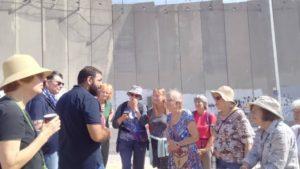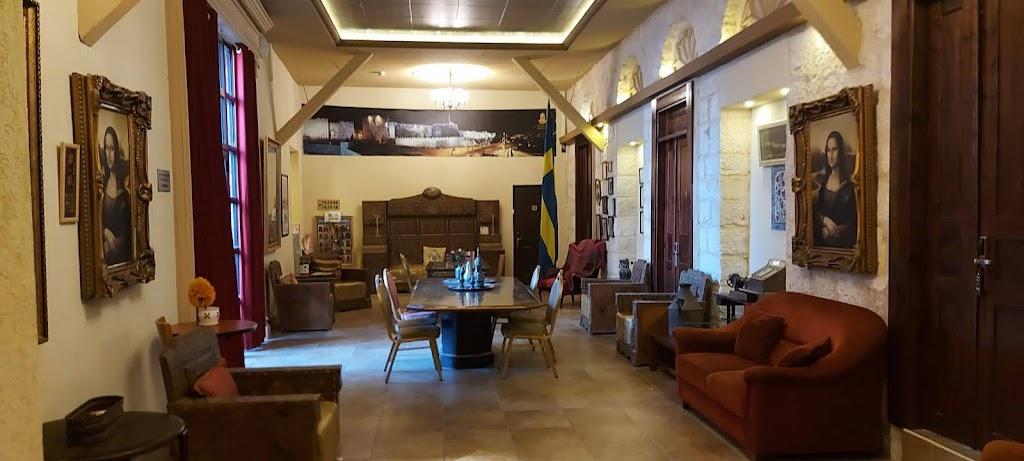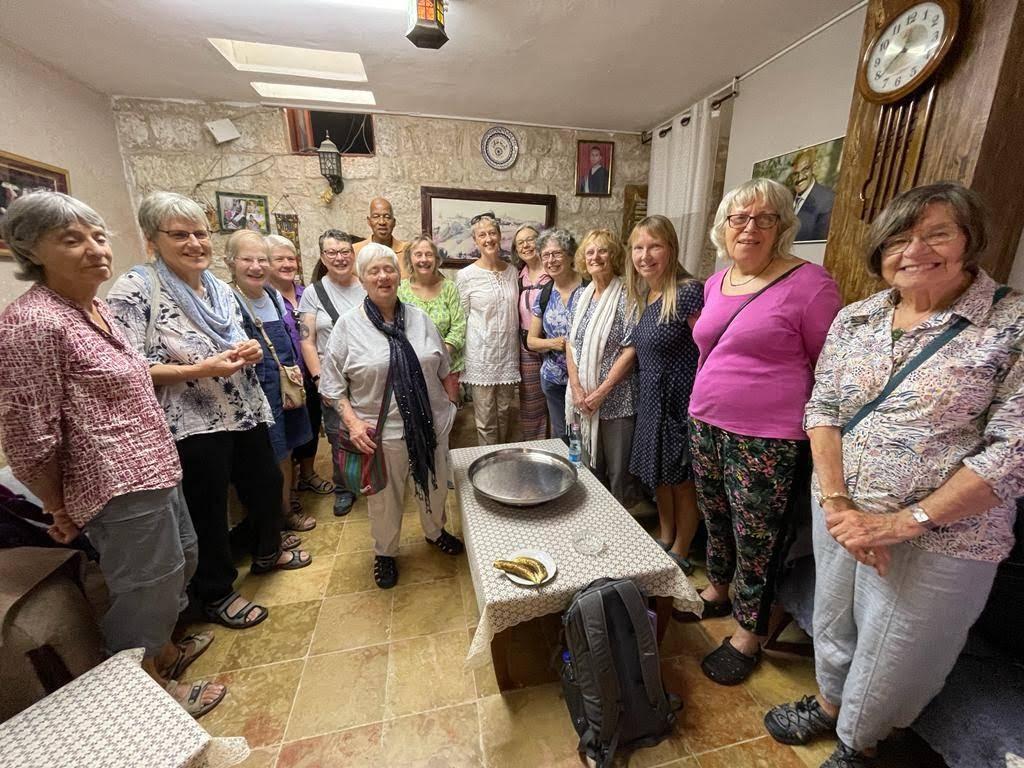Yesterday we had a tour of Jerusalem, guided by Khalil from Grassroots Al quds ( Al quds is the Palestinian name for Jerusalem). Khalil is a lawyer and activist who was born in his grandfather’s house inside the Al aqsa compound, and he expertly guided us through a historical, political and cultural explanation of life and the struggle to live in Jerusalem, intertwined with his own family’s experience. For us one of many emotional moments was driving along the main road out of Jerusalem eastwards towards Jericho. This east west road used to link Jaffa on the Mediterranean coast, Jerusalem, onwards to Jericho and beyond to Jordan in the east. Today the road is severed by the 8 metre high Annexation wall ( his words), a severing which cuts neighbour off from neighbour and has destroyed what used to be a bustling shop lined road with open markets all along. We gathered to sing in the shadow of the wall, looking out towards nothing but a petrol station and cars turning round at a roundabout leading to nowhere.
🎼
Khalil expertly explained to us the labyrinth of bureacratic ways in which Israel strives to make it harder and harder for Jerusalemites to prove that their ‘centre of life’ is Jerusalem. He compared this system as more akin to Nazism than to Apartheid South Africa, by which I understood him to be referring to the systematic and bureacratic oppression of Jews in the 1930s in Germany. Proving that your ‘ centre of life’ is Jerusalem means a daily struggle not to infringe often nonsensical ‘rules’. Khalil’s uncle, also a lawyer and born in Jerusalem, working and living in Jerusalem, made the ‘ mistake’ of sending his children to a West Bank school. For this error he lost his Jerusalem ID, was expelled from the city and today lives in Jordan as a stateless person, with no ability to travel and unable to practice law.
Thousands live in Jerusalem with the daily threat of home demolition as people have no choice but to build homes ( and increasingly whole apartment blocks) with no permission. When we asked what happened to people when they became homeless Khalil said one of the best things about life here was the very strong community solidarity which meant the instant a family lost the home collections would be made, shelter offered and new homes rebuilt.



